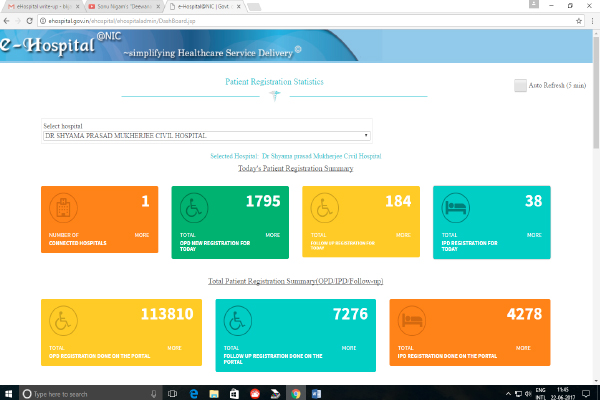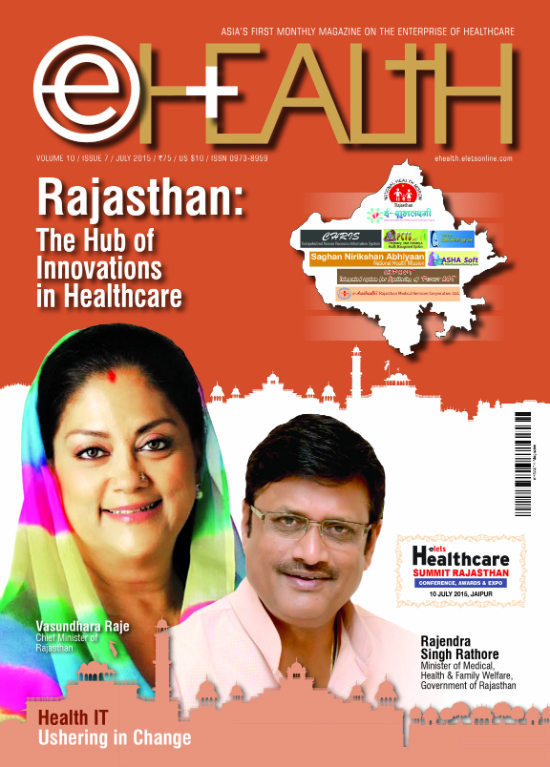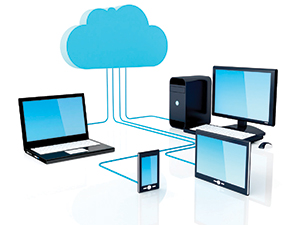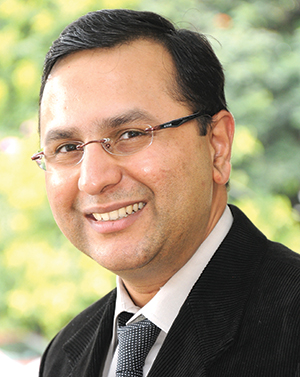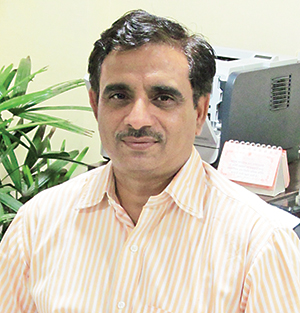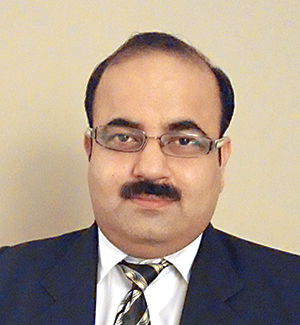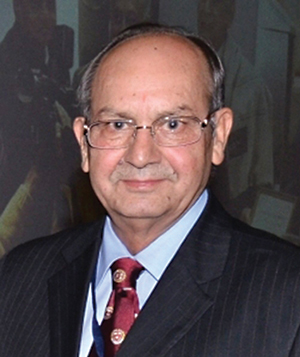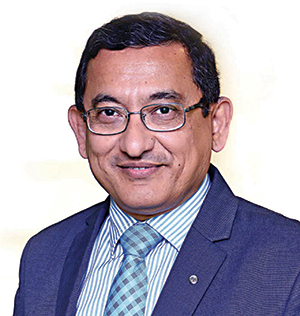

Naveen Jain, Mission Director, National Health Mission & Special Secretary, Department of Medical, Health & Family Welfare, Government of Rajasthan
It has been found that we are able to identify the women who are in the zone of high-risk pregnancy. However, we need to do certain things to make the pregnancy comfortable in a coordinated manner, says Naveen Jain, Mission Director, National Health Mission & Special Secretary, Department of Medical, Health & Family Welfare, Government of Rajasthan in conversation with Kartik Sharma of Elets News Network (ENN)
What are the initiatives taken by Rajasthan government to uplift healthcare scenario in the state?

Government of India has instructed all the state governments to make online payments to the beneficiaries of various schemes including Janani Suraksha Yojana (JSY). In JSY, an amount is paid to the pregnant woman if she delivers her child in a government facility. In rural areas, the amount is `1,400 while in an urban area it is `1,000. Earlier we were paying these incentives by cross cheques but now the Centre has asked all the states to increase transparency by using viable tools.
In Rajasthan, we are working on Online JSY and Subhalaxmi Payment Module (SPM). Along with JSY, if there is a birth of a girl, additional `2,100 instalment is given at the time of birth. So in Rajasthan, we are making two payments when there is a birth of a girl, one is JSY and other is SPM. Our online payment module will take care of both payments. We will be paying both payments into the bank account of a mother who is giving birth to a child. In case, if she gives a birth to a boy, the government will give the JSY amount to her. We have also modified our system in such a way that her bank account details and Aadhaar number is captured when she turns up for her antenatal care. Normally, a pregnant woman should come for four antenatal care checkups and when she comes, we asked her to provide us with her bank account details so that we can deposit the incentive amount into her account directly.
Please throw some light on the Rashtriya Bal Swasthya Karyakram (RBSK) scheme?

The RBSK was unveiled in Rajasthan in six districts in June and then extended to 20 districts in November. The Centre has sponsored the scheme under the National Health Mission (NHM), a team has been constituted which goes to schools and Aganwadis. Health of all the students in the schools and Aganwadis is screened by AYUSH (Ayurveda,Yoga and Naturapathy, Unani, Siddha and Homeopathy) doctors based on 30 health parameters and then if any child is found having health related problems, then we refer him or her to the next higher facility.
We have been able to screen around 22 lakh children in Rajasthan and 1.26 lakh of them were referred to the higher facilities. We are treating children for even very grave illness like congenital heart disease. We have a tie up with certain hospitals and also government medical colleges also extending support to us. Many companies like Mayur, HJL and other NGOs have helped us in making available the vehicles bring the ill children to the district hospitals and medical colleges.
ASHA Soft has been one of the key eInitiatives in the state. Please tell us more about it?
ASHA Soft has been a very successful application for Rajasthan in the last seven months since it was unveiled. It was dreamt that all the ASHAs of Rajasthan would be paid online into their bank accounts once they fill an ASHA claim form. We have able to sustain the programme very well as we took some very good decisions in the last seven months. Now we are also suggesting other states that how a transparent payment system can lead to very good data. ASHA workers are now happy that they are receiving payments directly into their bank accounts without any hiccups. We are contemplating that some ASHAs should be given tablets while a mobile app can be developed to experiment whether they can do certain things for which they need not come to primary health centres again and again. Once the Internet facility is available at their villages, we can get crucial data from their houses.
Rajasthan is infamous for its high Maternal Mortality Rate (MMR). What are the key steps taken by Government of Rajasthan to reduce MMR?
In Rajasthan, our maternal mortality rate is near about 244 per lakh life birth and it is quite very high compared to other states. Although in 1997-1998 it was more than 500 and in last 15 to 17 years, the ratio has gone down by more than half and still we need to do a lot. This year, government has taken up a very ambitious program called Kushal Mangal Karyakram. It is for the management of high-risk pregnancies. It has been found that we are able to identify the women who are in the zone of high-risk pregnancy. But we need to do certain things to make the pregnancy comfortable in the coordinated manner. In this program, we will provide a telephone call facility, where our 104 helpline people will call the identified women enquiring their well being and they would be provided with ambulance and if she demands an ASHA worker to escort her to delivery point, it would be given to her. We shall be making a small software which will track the pregnancies of these women and also will ensure that delivery is done is comfortable manner.
How eUpkaran Software helps government in inventory management?
A provision of equipment and diagnostics at a healthcare facility is very important to provide efficient health services to the general public. It is felt that sometimes the equipment are not used and they remain packed in the boxes and sometimes these equipment once dysfunctional, in charges do not get the issue rectified. eUpkaran will create centralised inventory management system. Thankfully in the year 2015- 2016, Government of India has promised that if a state creates a system, they will give finance to repair the dysfunctional equipment. Our projects have already made the software and we are mapping all the equipment from 34 districts and soon we shall be training all the staff which is concerned with working of this equipment.
Be a part of Elets Collaborative Initiatives. Join Us for Upcoming Events and explore business opportunities. Like us on Facebook , connect with us on LinkedIn and follow us on Twitter , Instagram.


